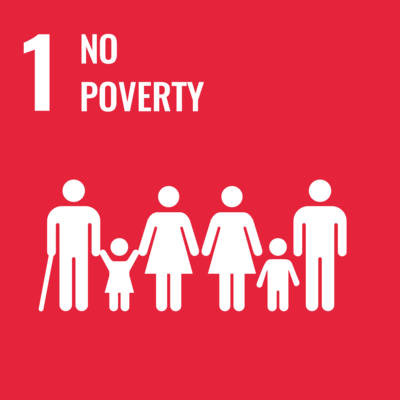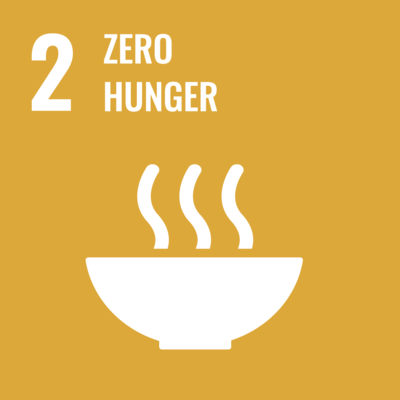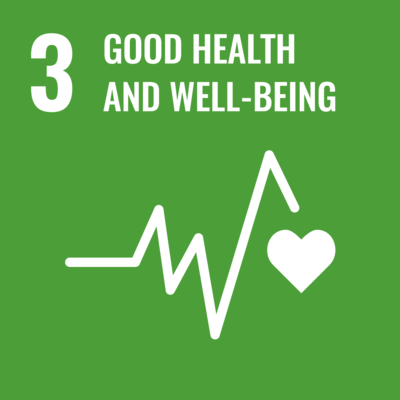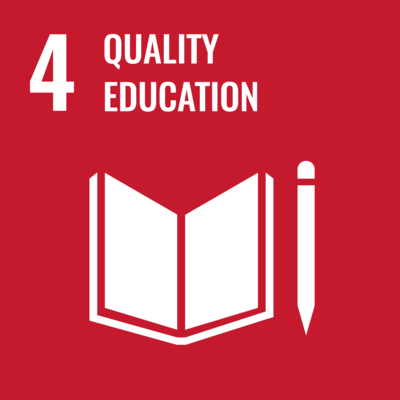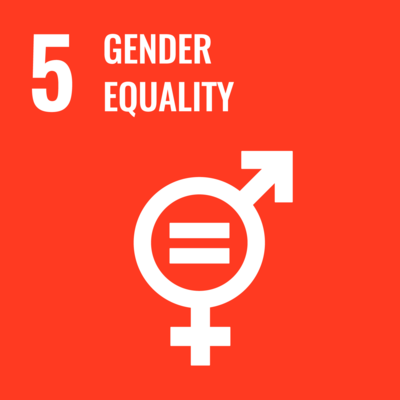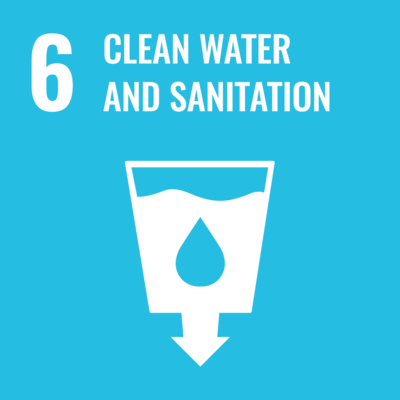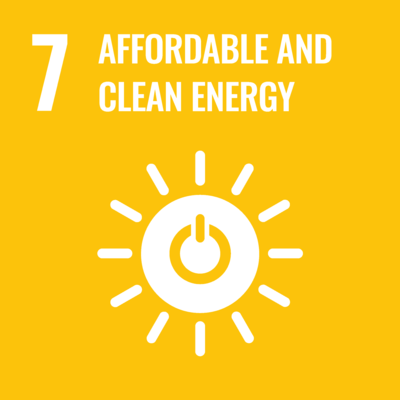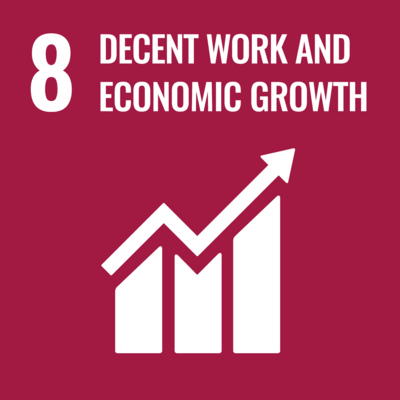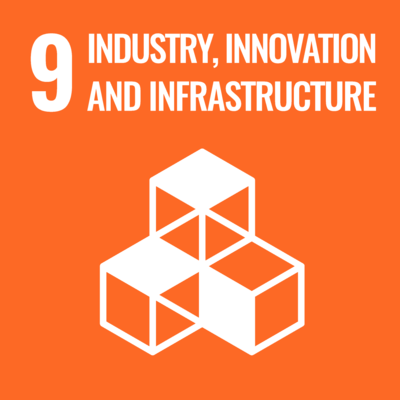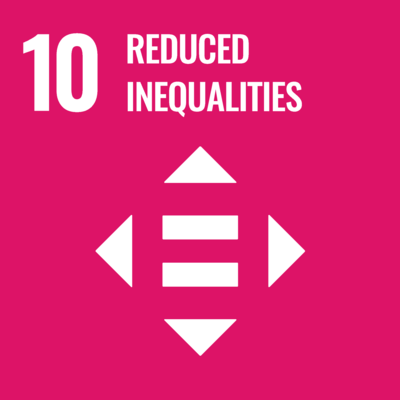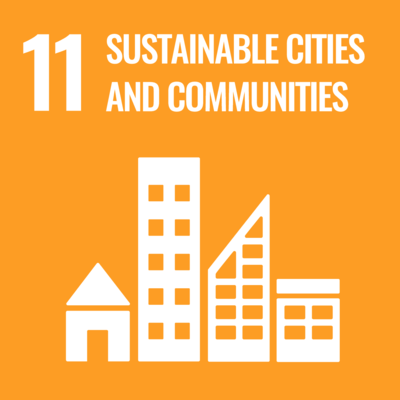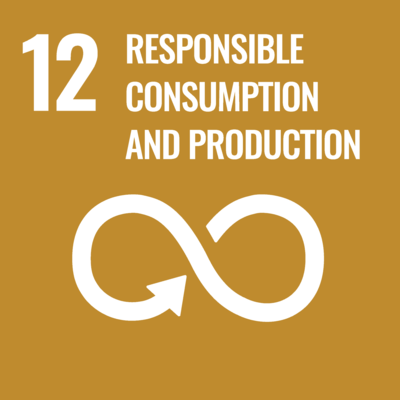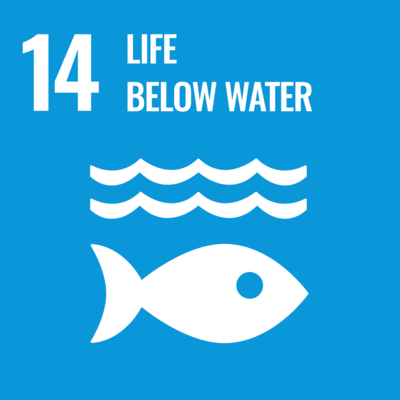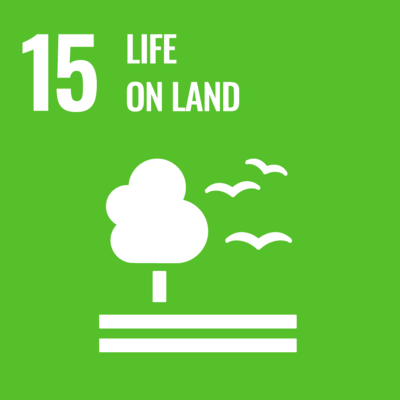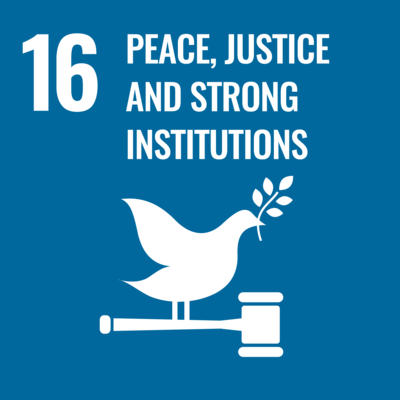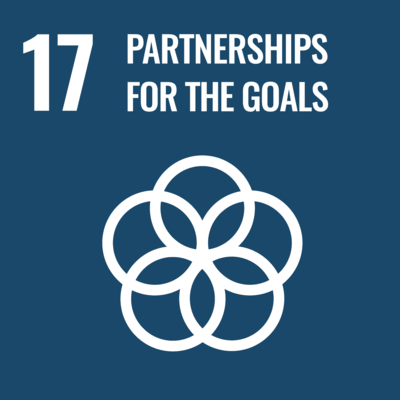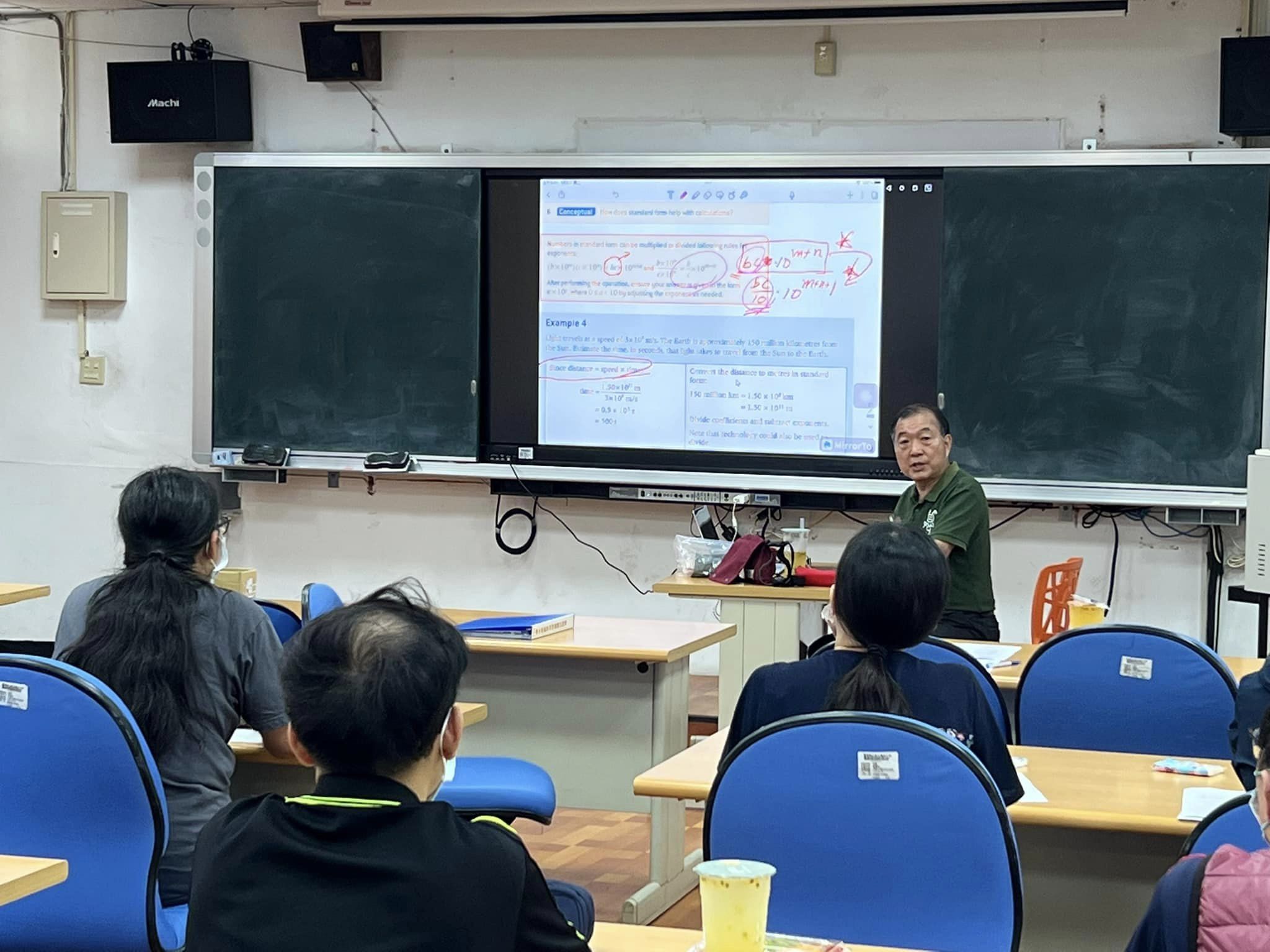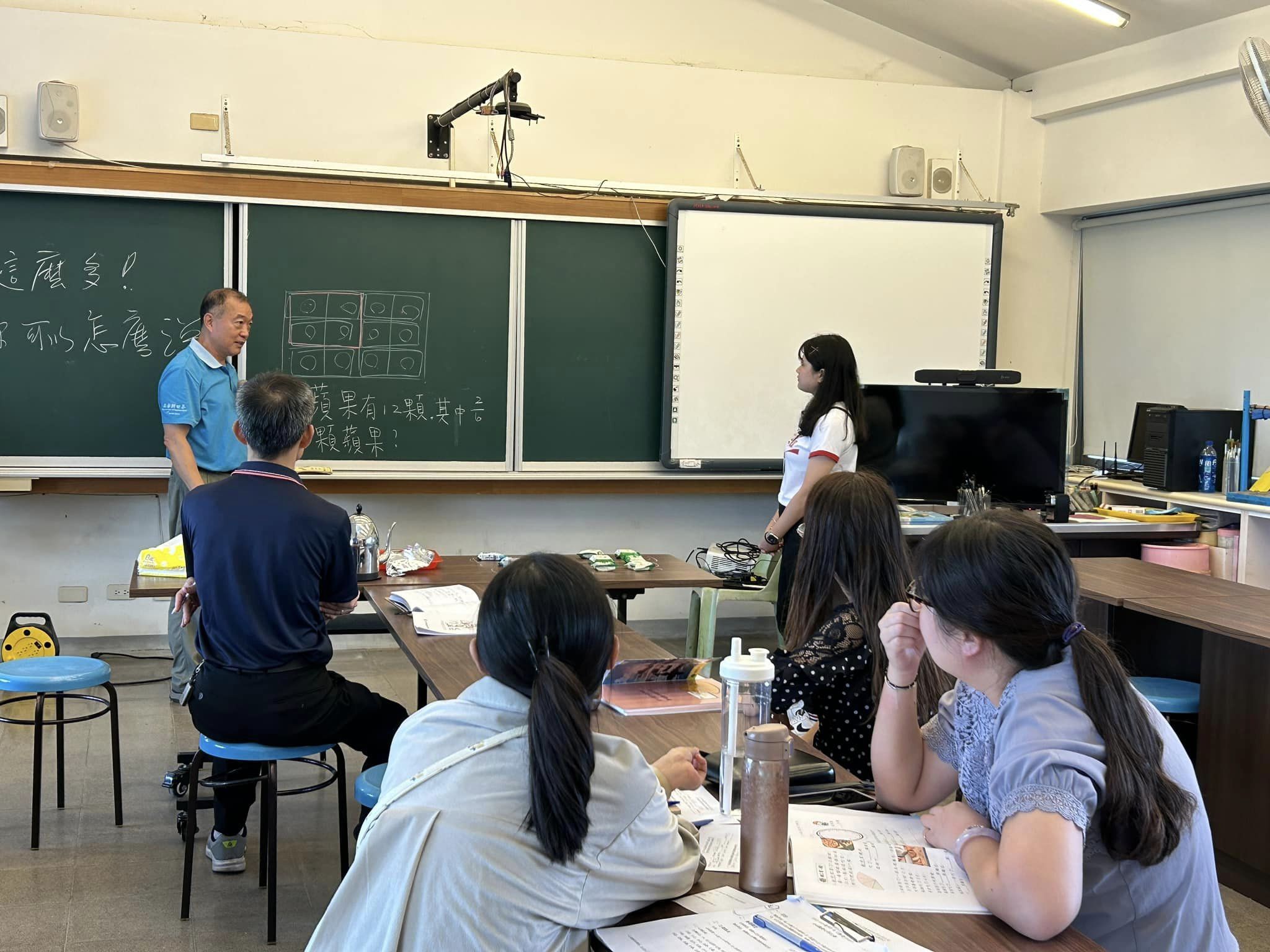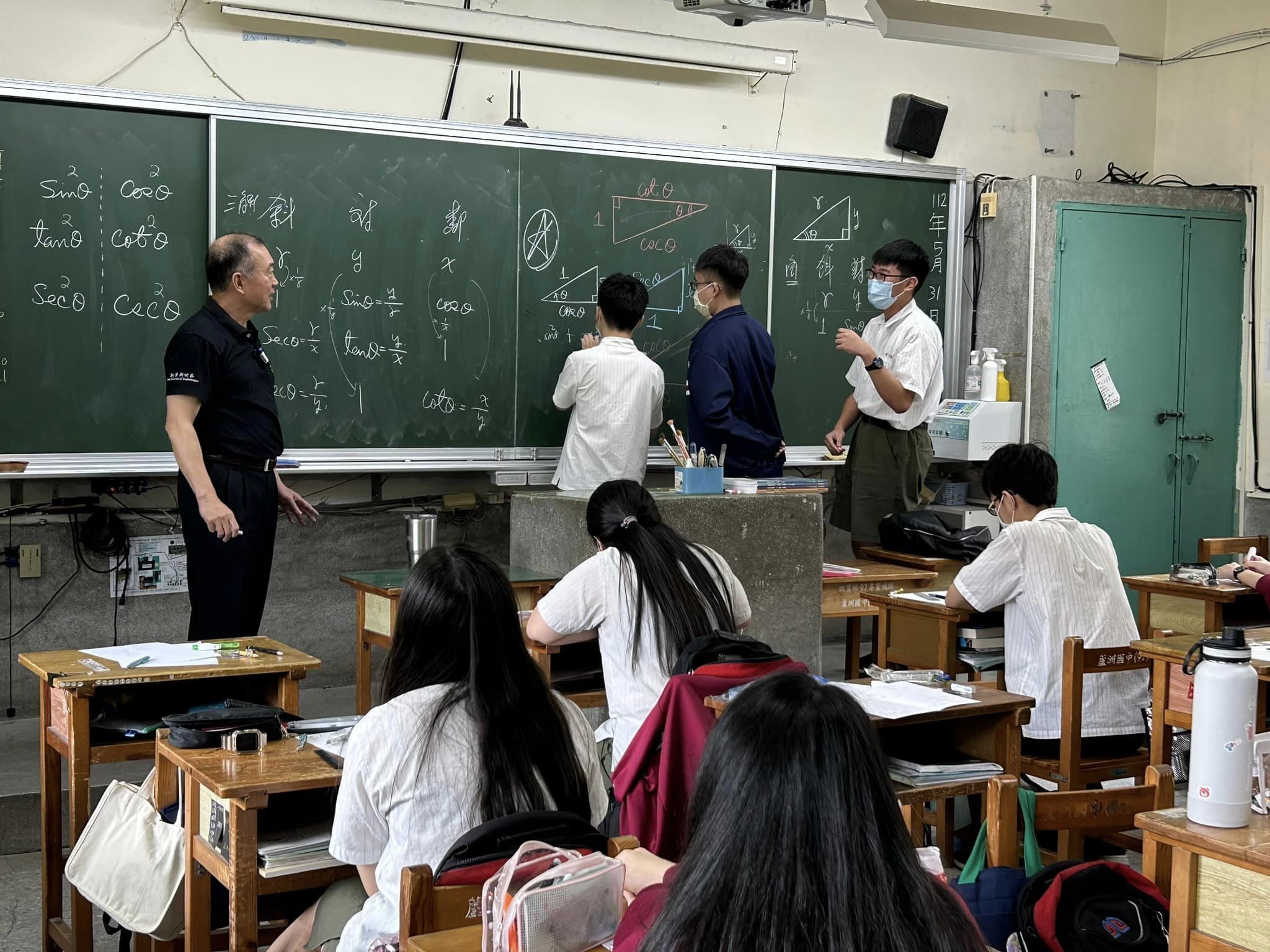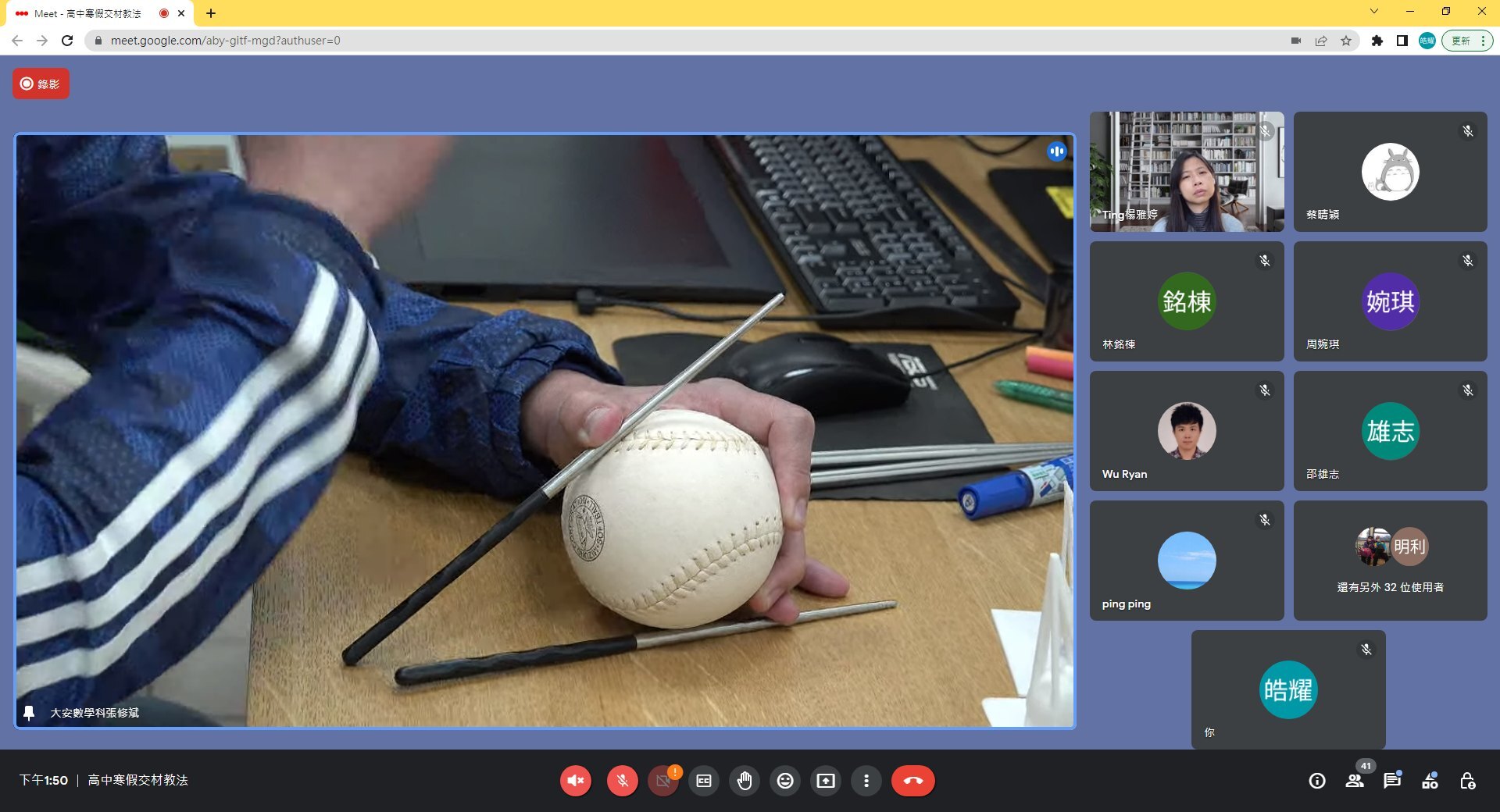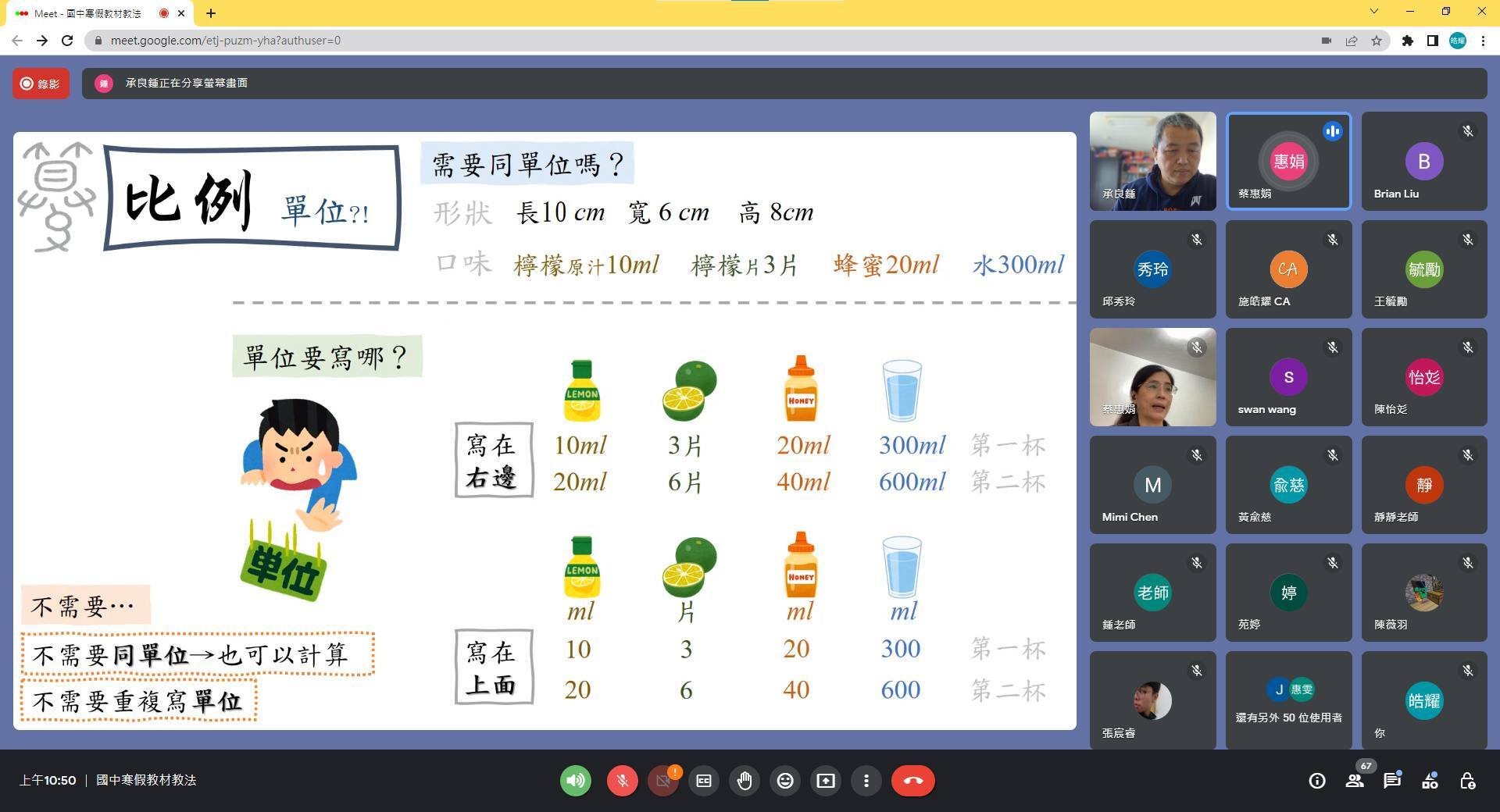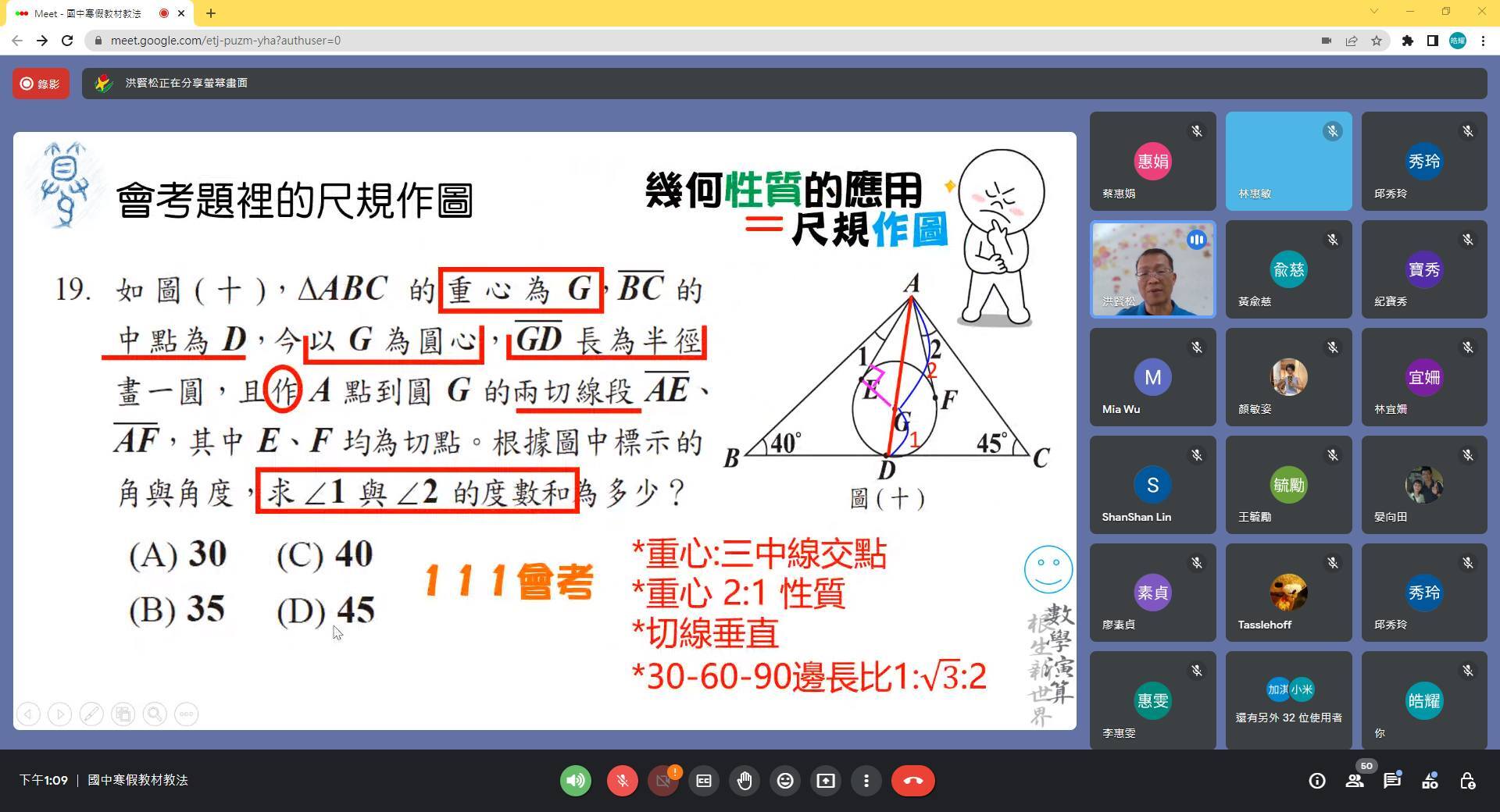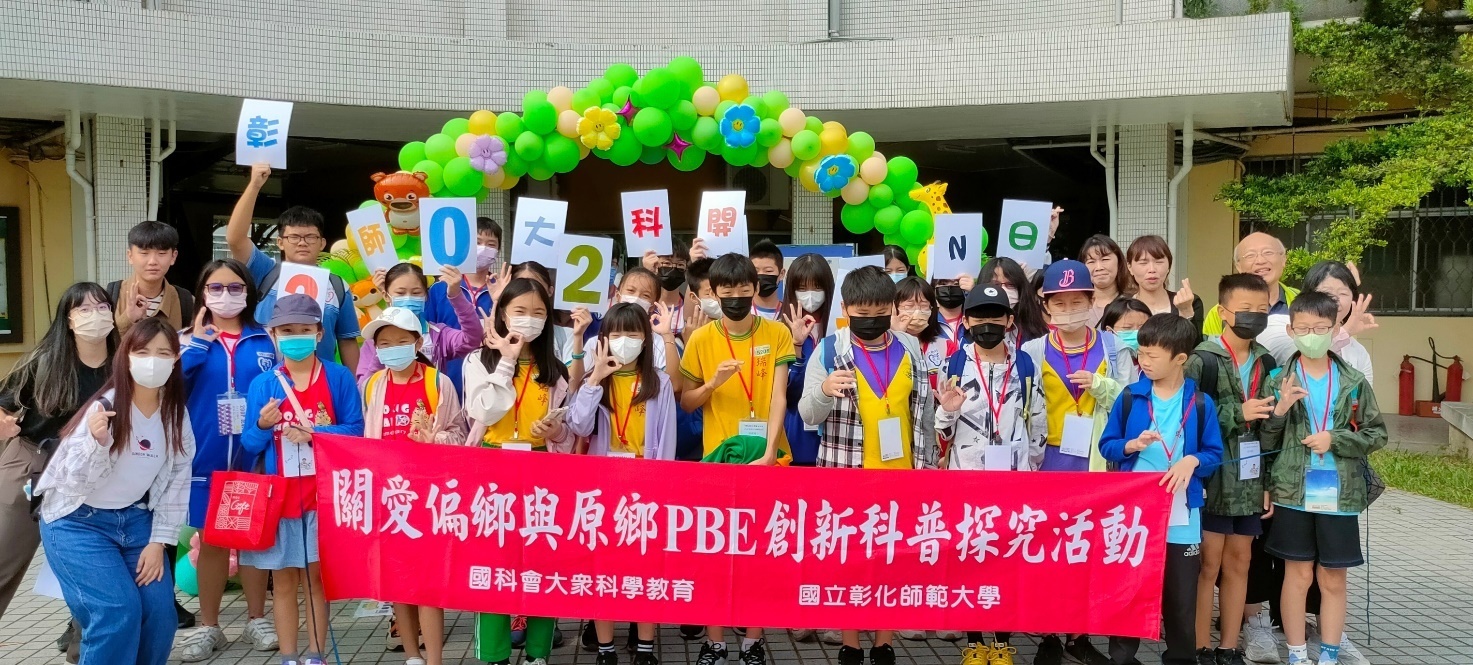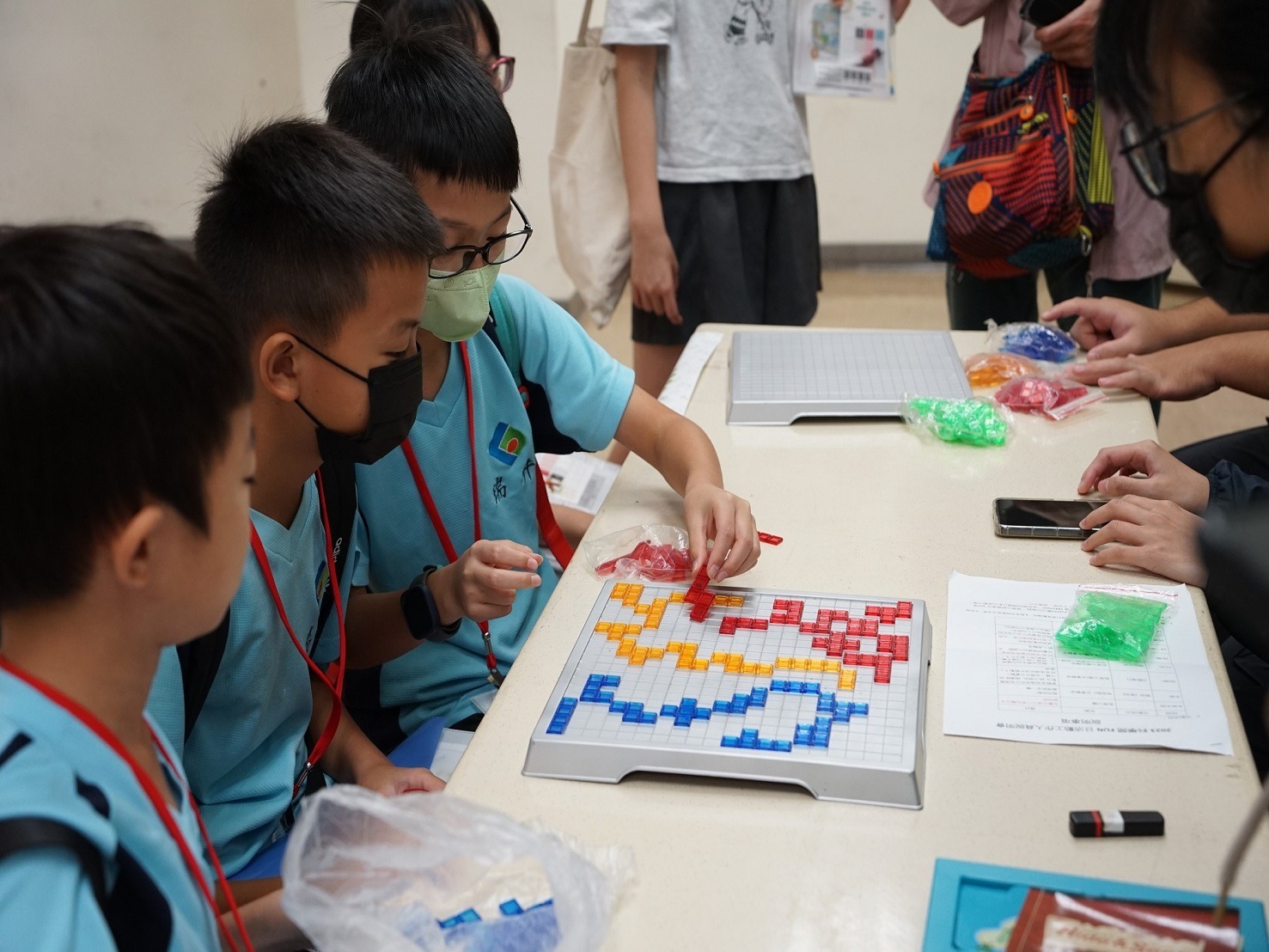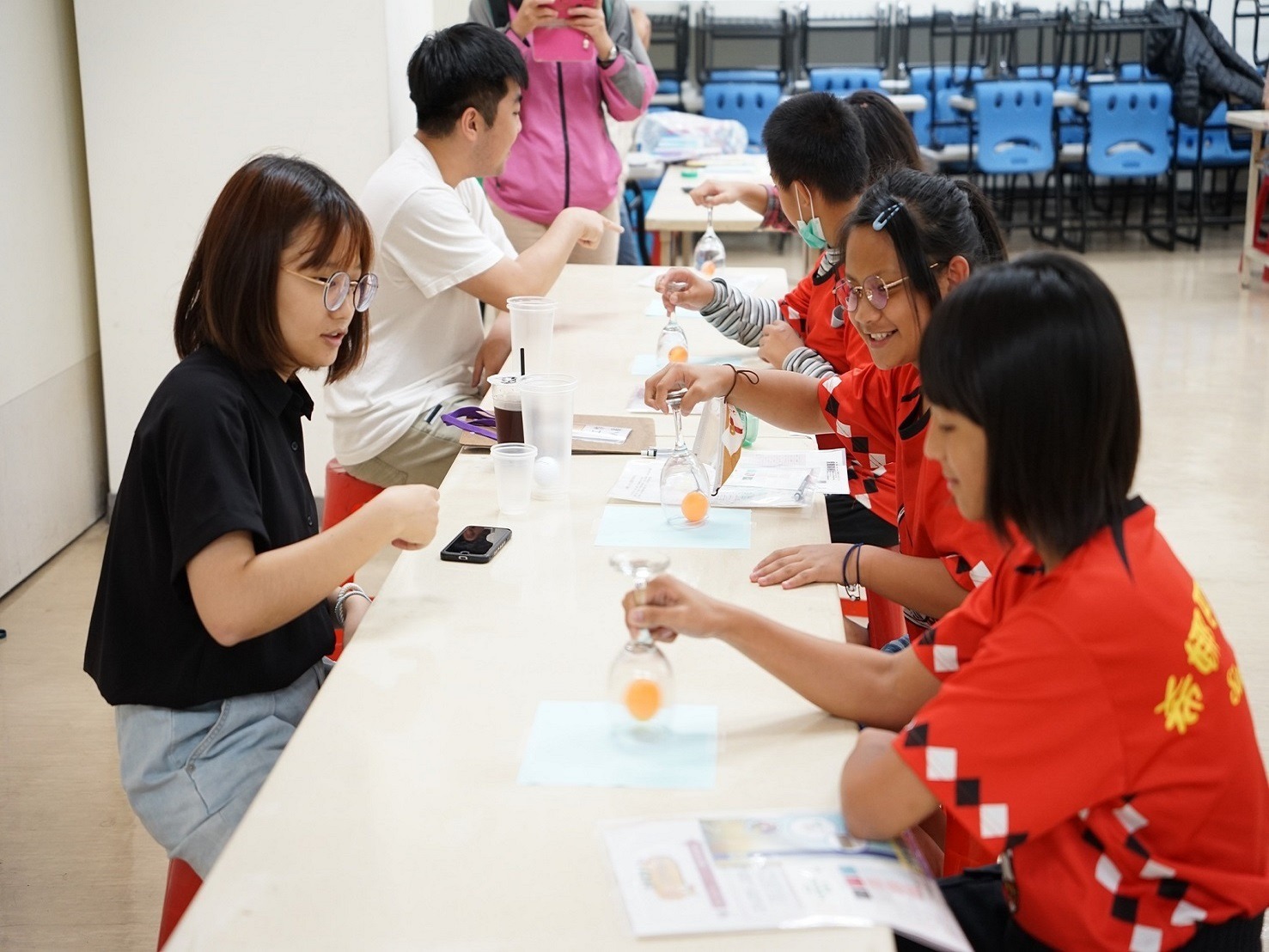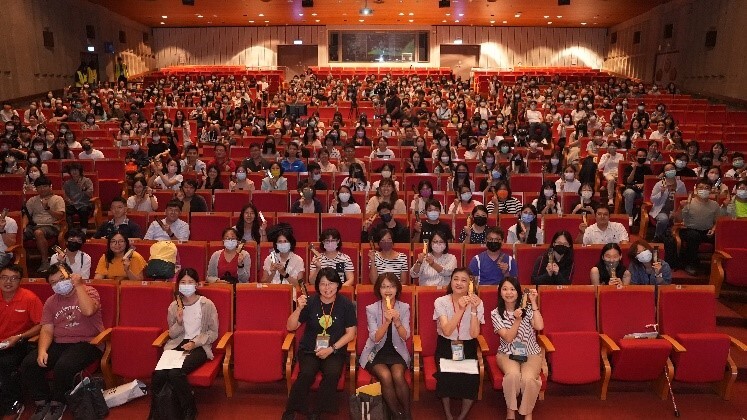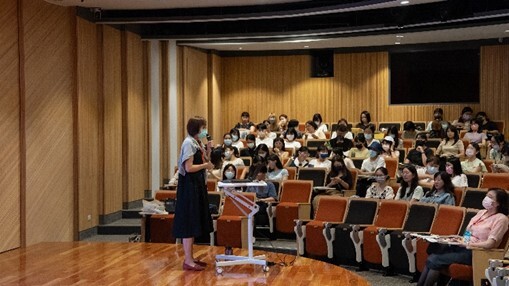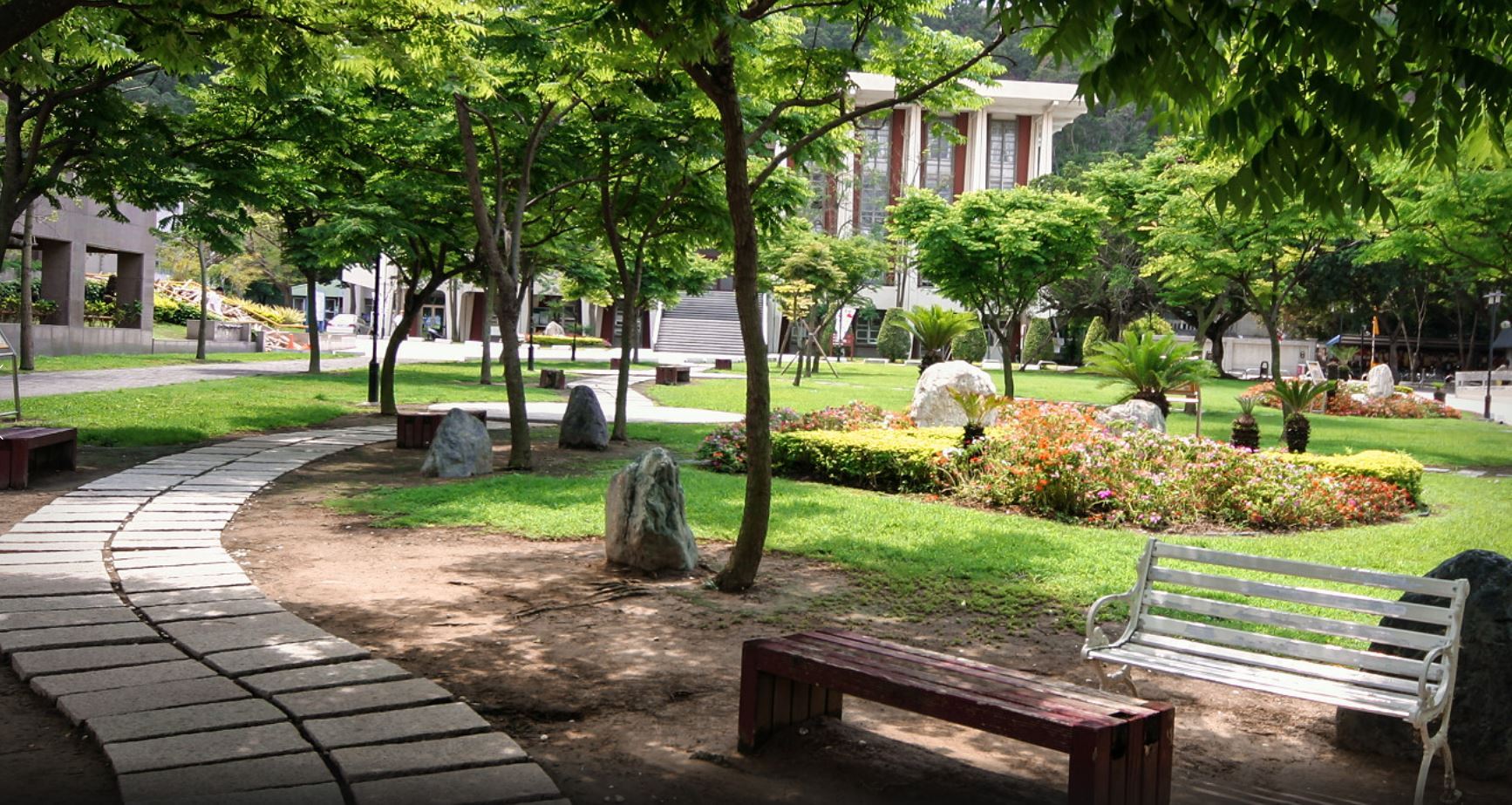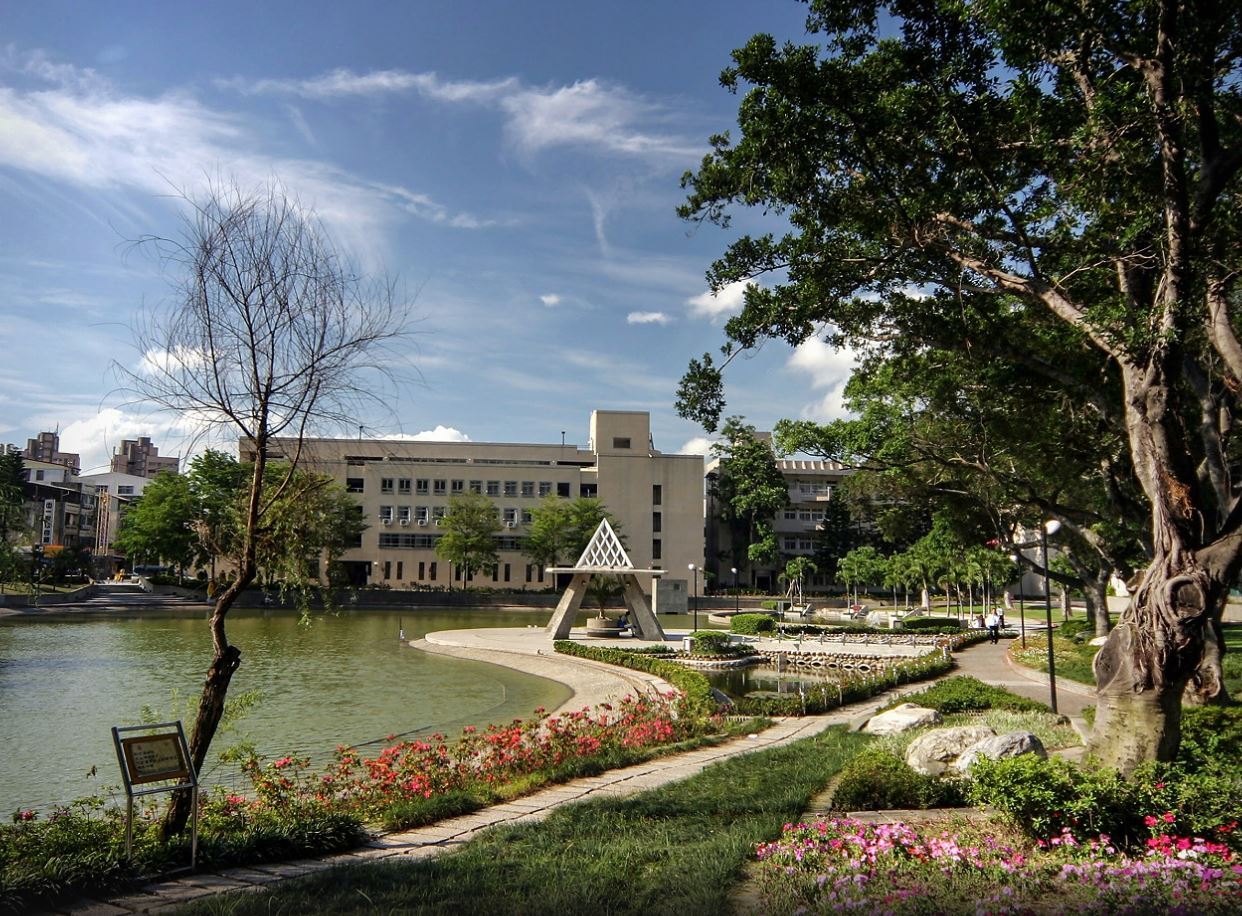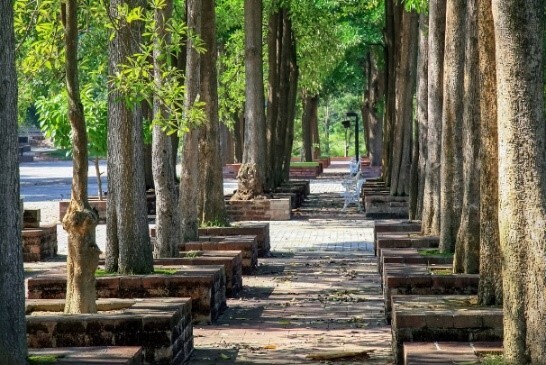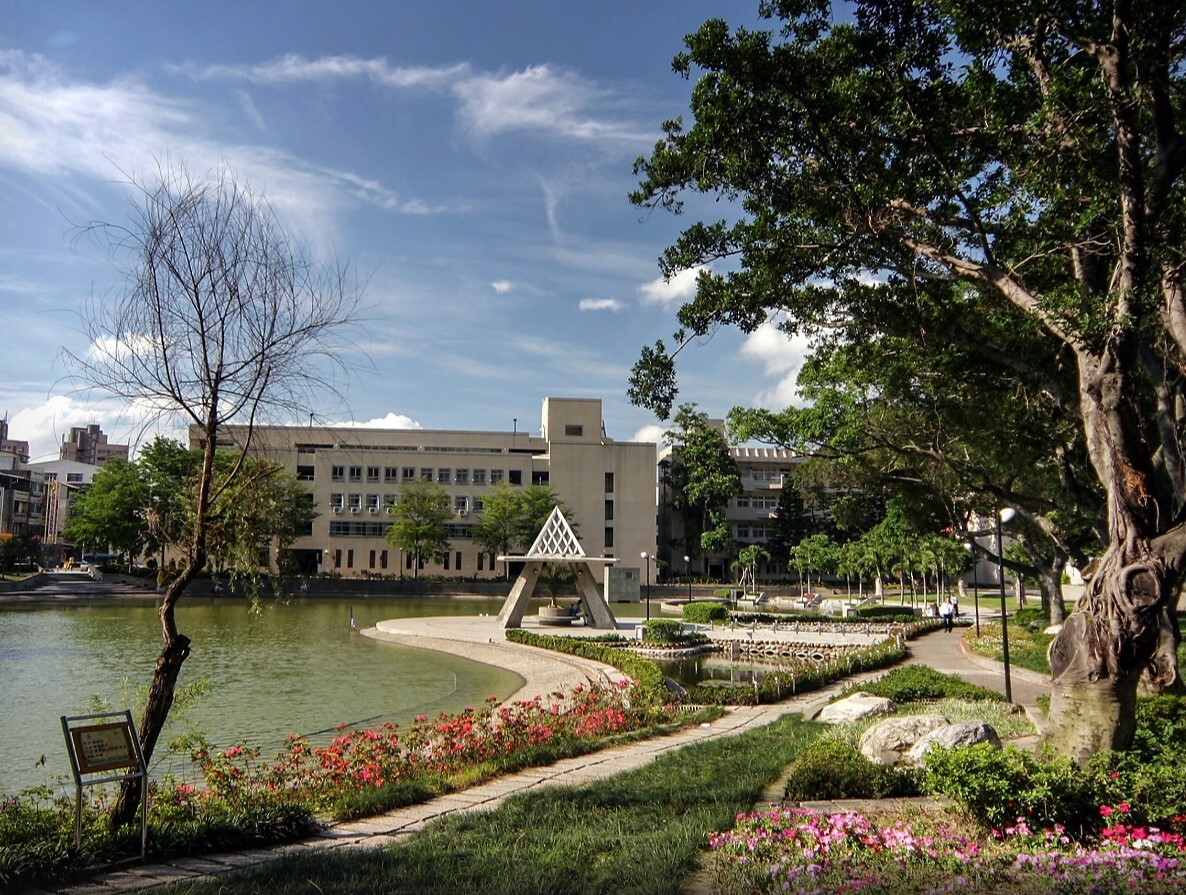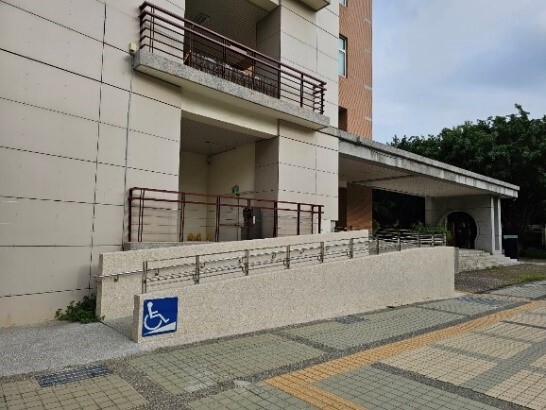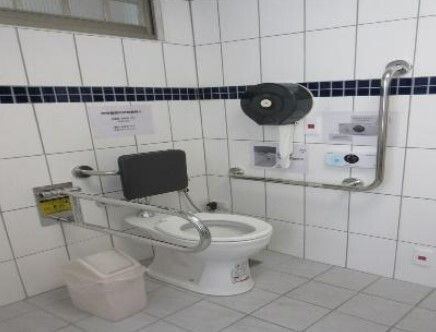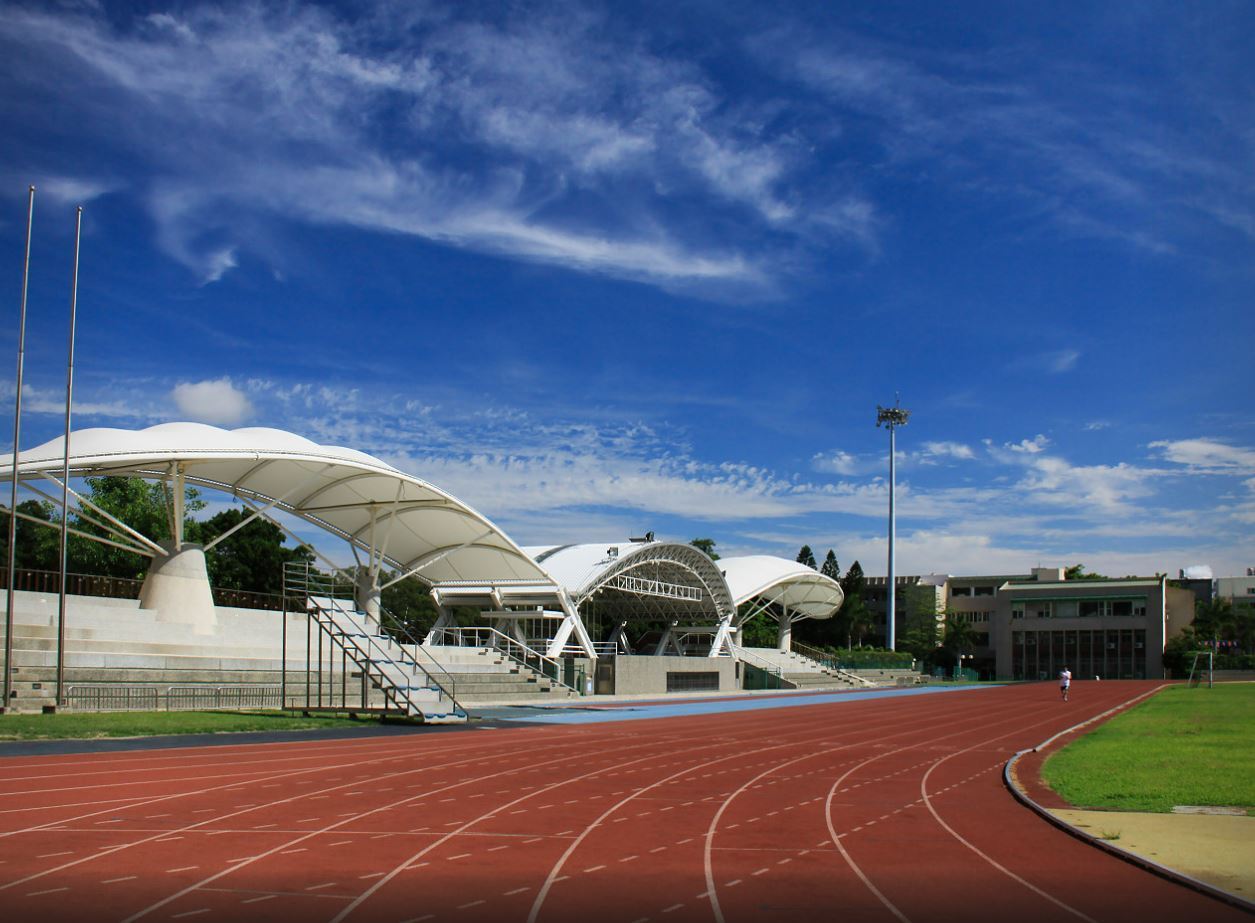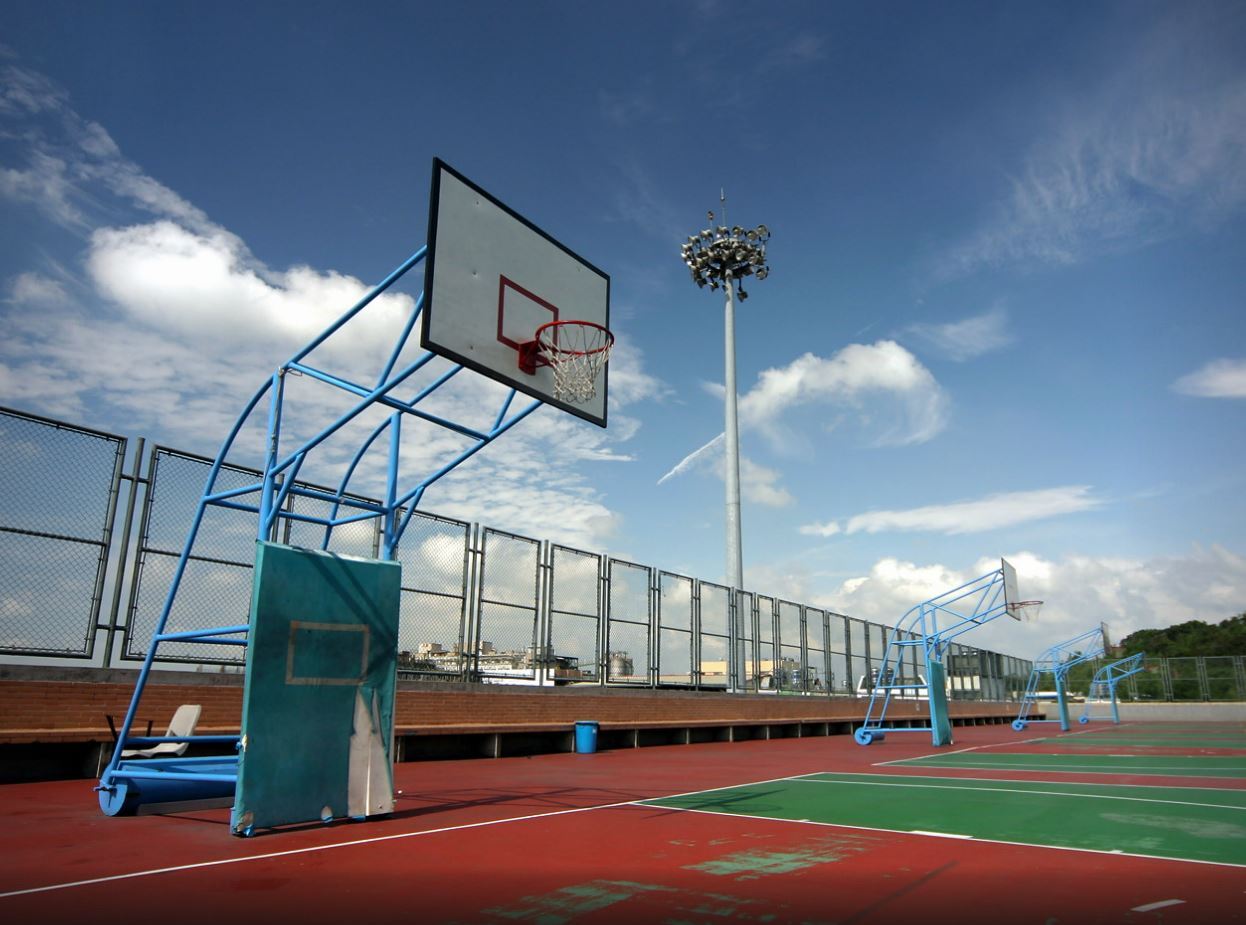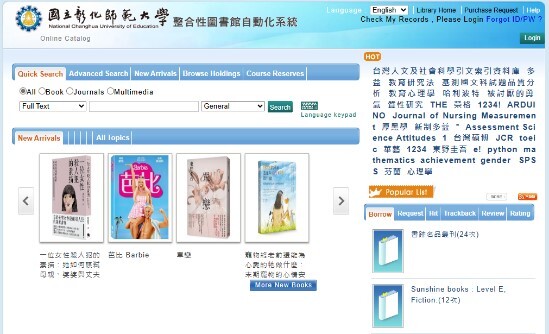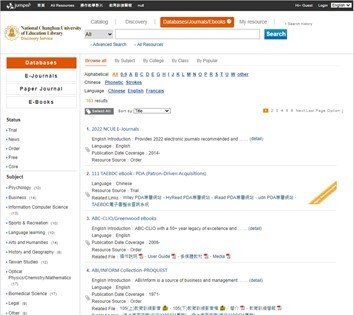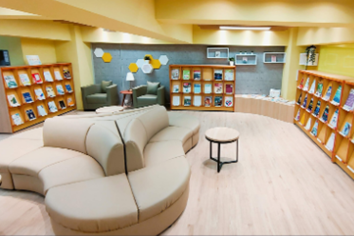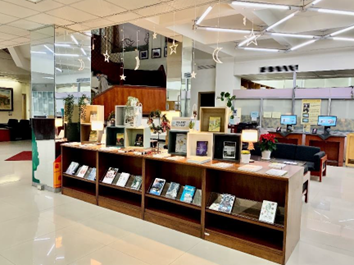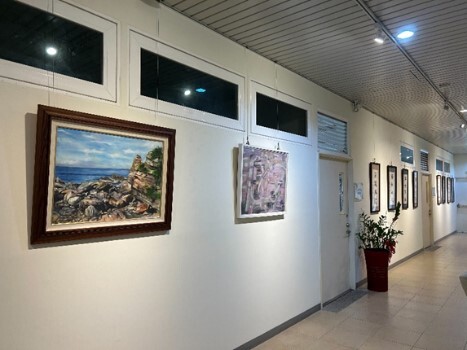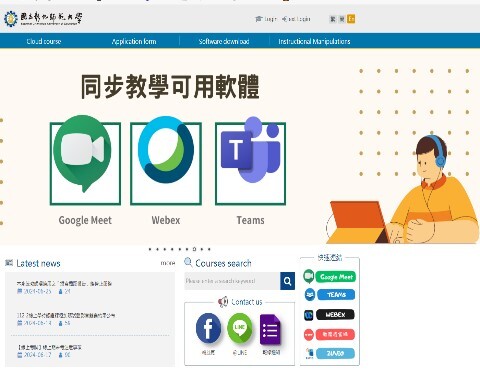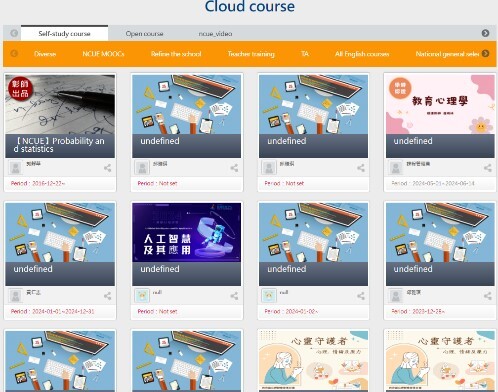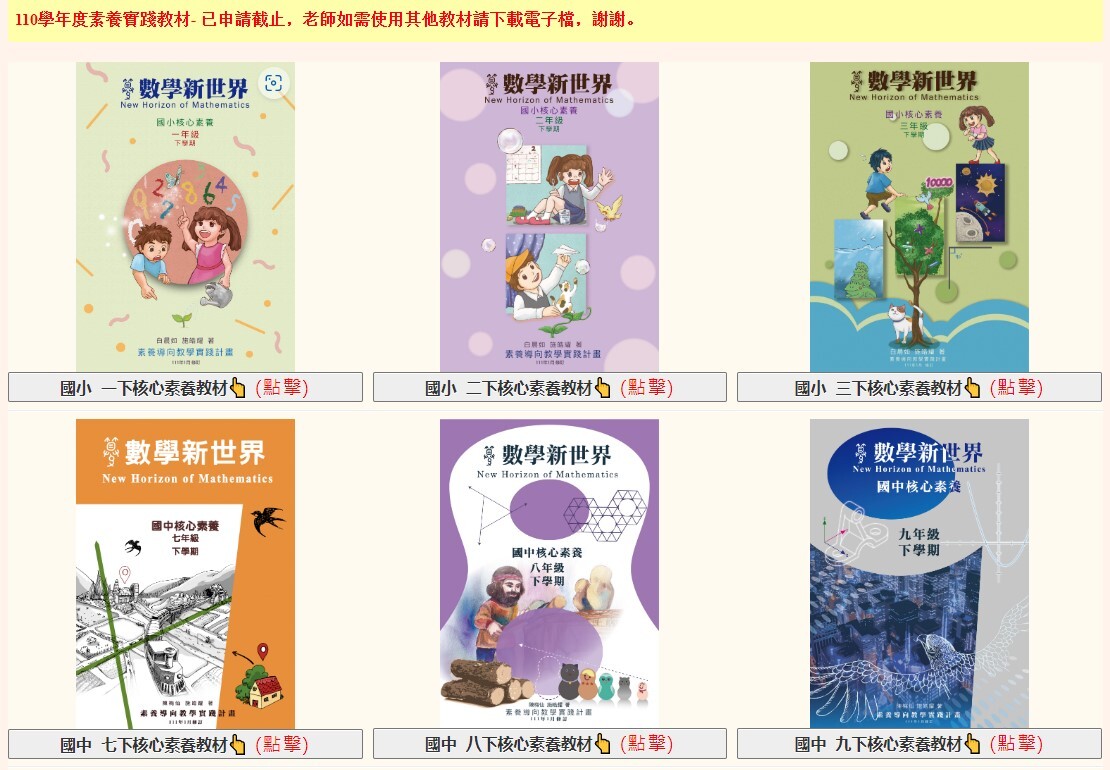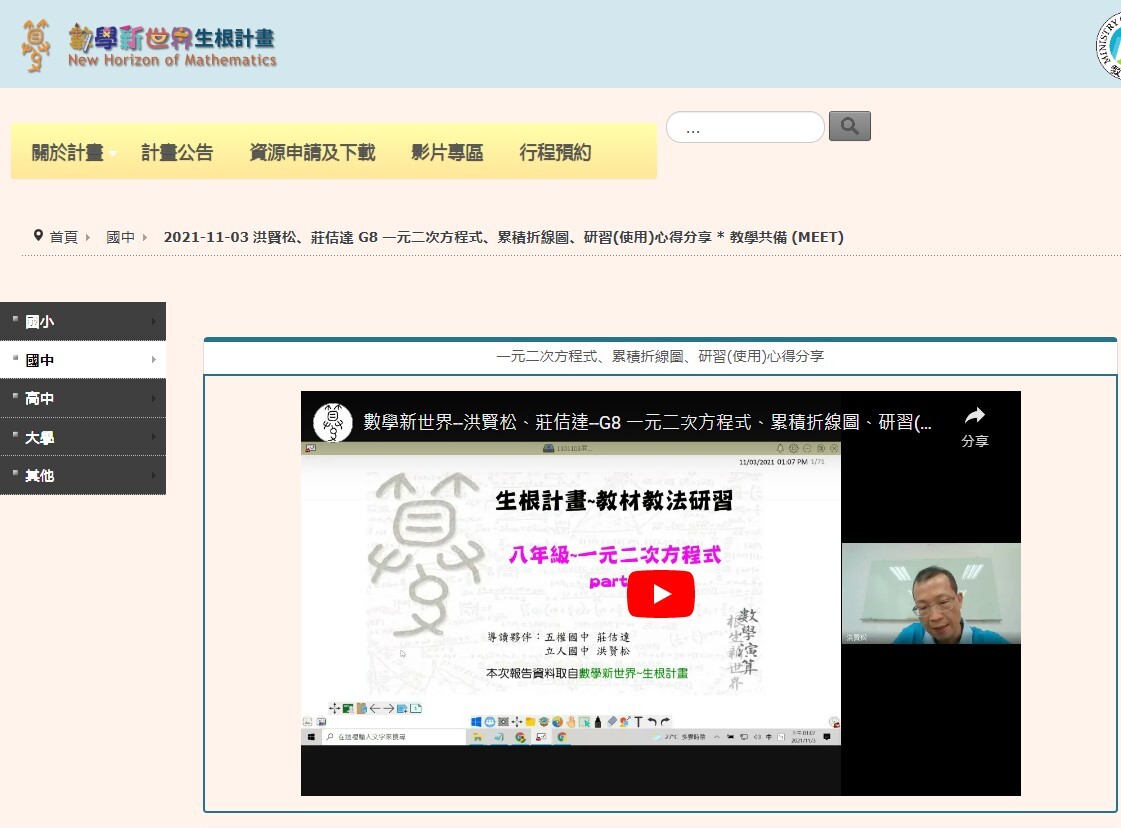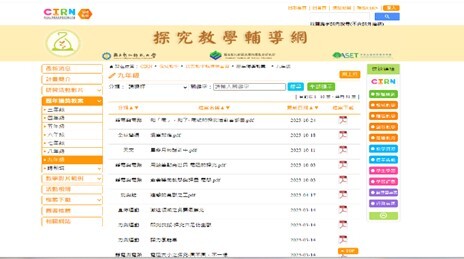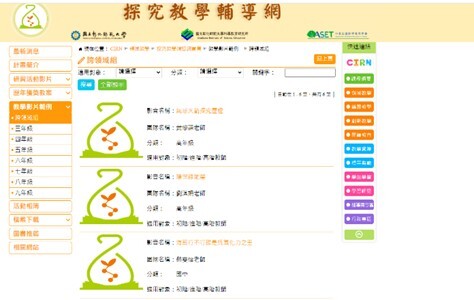SDG 4.3.1 Public resources (lifelong learning)
NCUE, as an institution for secondary education teacher training in Taiwan, has long offered free in-service training courses for teachers from various towns and cities. Additionally, we provide numerous free in-person and online educational resources for individuals who are not enrolled at NCUE. Furthermore, NCUE opens its campus facilities, including the library, sports fields, and courts to the public, allowing visitors to use these spaces and equipment.
1. Free Courses Leading to Certificates or Awards
NCUE organizes free courses and workshops on a regular or occasional basis, offering participants certificates or proof of attendance. The courses and workshops offered by NCUE include professional training for mathematics teachers, training for science seed teachers, English teaching resources and courses, the Science Fun Day, workshops for beginning teachers, and a variety of public lectures.
(1) Professional Training for Mathematics Teachers:
Since 2015, NCUE has implemented the New Horizon of Mathematics Project, offering annual free training workshops for seed teachers. Participants who complete the training receive certification of training hours. Through observation and hands-on practice, teachers gain a solid grasp of mathematical knowledge, along with a deeper understanding of the structure of mathematical concepts and the foundational ideas behind them. This approach equips elementary, junior high, and high school teachers with the ability to guide students in building mathematical concepts comprehensively, as well as to adapt their teaching methods more flexibly.
In 2023, NCUE hosted the Teacher Training Workshops on Mathematical Literacy, the Teacher Training Workshop on Mathematical Literacy Teaching Materials and Methods, and the Workshop on Mathematics Teaching Materials and Methods for Grades 1 through 9, totaling 59 sessions, available both in-person and online, with a total of 5,270 primary and secondary school teachers participating. Whether attending in-person or online courses, teachers receive certification for their learning hours upon completion of the training workshops (see Figures 1 to 6).
Project website: http://www.nhmath.com/NH-MATH/
Facebook: https://www.facebook.com/nhmath.tw
Albums: https://www.facebook.com/nhmath.tw/photos_albums
Demonstration Teaching Video: https://www.youtube.com/@NewHorizonofMathematics/videos
|
|
|
|
Figure 1. Teacher training workshop |
Figure 2. Teacher training workshop |
|
|
|
|
Figure 3. In-class demonstration teaching in junior high school |
Figure 4. Online workshop |
|
|
|
|
Figure 5. Online workshop |
Figure 6. Online workshop |
(2) National Training on Inquiry-Based Curriculum Design and Implementation for Science Teachers in Elementary and Junior High Schools:
In alignment with the national policy to promote 12-year compulsory education, NCUE offers several free “Inquiry and Practice” science courses. These courses aim to assist elementary and junior high school science teachers across the country in continuously enhancing their integrated teaching skills. The training focuses on developing teachers' abilities to design and implement inquiry-based teaching curricula, enabling these seed teachers to foster a spirit of inquiry in their classrooms and achieve the goal of improving the scientific literacy of future citizens.
In 2023, a total of 34 free courses were held across the country, with 495 teachers participating and receiving certification for their learning hours.
Website: https://cirn.moe.edu.tw/Module/index.aspx?sid=1197
Event photos: https://cirn.moe.edu.tw/Module/PhotoDetail.aspx?sid=1197&mid=13636&photoclassid=1021#
(3) English Teaching Resources:
In support of the national policy to promote bilingual education, NCUE has developed digital English audio-visual teaching materials and designed numerous instructional videos for teachers to use in their courses. To assist in-service teachers at senior high schools and vocational high schools in utilizing these digital materials and integrating them into their English curricula, NCUE organized 8 free training courses in 2023. A total of 81 teachers participated in these courses and received certification for their learning hours.
(4) Science Research Talent Development for High School Students:
The Department of Physics at NCUE has been implementing the Scientific Research Talent Development Program for Selected Senior High School Students (Physics Group) for over a decade. The program includes curricula for both first-year and second-year high school students, with both classes spanning the entire academic year.
The first-year class focuses on building a strong foundation in physics, enhancing students' understanding of physics concepts, and training them in physics-specific research topics. The second-year class emphasizes gaining hands-on experience with experimental techniques and fostering students' ability for developing independent thinking.
This program also includes off-campus visits and learning activities, providing students with more diverse and enriching learning opportunities and experiences.
http://phys5.ncue.edu.tw/gifted/index.htm
https://www.youtube.com/watch?v=c8DaaYvdDz4
https://www.facebook.com/NcueGifted
(5) Science FUN Day:
To enhance the scientific literacy among citizens, foster a scientific mindset in daily life, and provide students from remote areas of Changhua County with the opportunities to learn high-quality scientific knowledge, NCUE organizes the annual Science FUN Day as a free event. On the Science FUN Day, a variety of engaging and fun science-themed activities are offered, allowing participants to conduct hands-on scientific experiments and experience the wonders of science. The Science FUN Day aims to encourage the public to integrate logical thinking and scientific mindset into their daily lives.
In 2023, 21 science-themed activities were featured, divided into the Science Magic Zone, the Science Adventure Zone, and the Science Exploration Zone. Through these life-oriented, interactive activities and in-depth yet understandable explanations, junior and senior high school students had the opportunity to conduct hands-on experiments and explore various fields of science. The Science Fun Day attracted over 10 partner schools, including junior and senior high schools, with more than 550 participants. By hosting the annual Science Fun Day, NCUE provides a chance for participants to easily acquire knowledge and enjoy the fun of learning science. Those who complete the required number of activities can receive a certificate of completion and a surprise gift as rewards (see Figures 7 to 9).
News report: https://science.ncue.edu.tw/promote_detail/10/
NCUE campus news article: https://www.ncue.edu.tw/p/406-1000-24401,r93.php?Lang=zh-tw
|
|
|
|
Figure 7. The 2023 Science FUN Day |
|
|
|
|
|
Figure 8. Hands-on experiment on the 2023 Science FUN Day |
Figure 9. Hands-on experiment on the 2023 Science FUN Day |
(6) Workshops for Beginning teachers:
Since 2017, NCUE has annually organized several training courses focused on career orientation and practical teaching methods for beginning teachers. These courses are designed for teachers who are appointed for the first time as full-time formal teachers in public schools at or below the secondary level in the given year. The aim is to strengthen beginning teachers' skills in classroom management and innovative teaching competencies, support their transition into the teaching profession, and ultimately help them excel in their teaching positions.
The 2023 training took place from August 7 to August 18 and was divided into three regions: North, Central, and South Taiwan. The training followed a format of one day of synchronous online courses and two days of in-person workshops. The number of participants from each educational level was as follows: 372 from kindergartens, 2,459 from elementary schools, 327 from junior high schools, and 238 from senior high schools, totaling 3,396 beginning teachers (see Figures 10 to 11).
|
|
|
|
Figure 10. Oath-taking and closing ceremony for the beginning teacher workshop |
Figure 11. Course on professional learning and interpersonal relationships |
(7) Public Lectures:
NCUE organizes numerous lectures or activities each academic year, which are open to the public. In 2023, we hosted at least 108 themed lectures for individuals outside the university community. Please refer to Attachment 4.3.1A—List of Public Lectures for details.
2. Free Access to Campus Facilities and Equipment:
NCUE campus is open to the public free of charge. Facilities such as the library, sports fields and courts, art exhibition spaces, and restrooms are available for free use by the public.
NCUE places great emphasis on the accessibility of campus facilities. All buildings and campus areas are inspected and upgraded in compliance with accessibility regulations. We have installed accessible elevators, restrooms, ramps, and guidance systems to ensure easy access for disabled individuals.
(1) Campus Spaces:
NCUE’s two campuses encompass a combined 43.5 hectares of lush green space. The campuses are freely open to the public, allowing visitors to enjoy walks throughout the grounds. Specially designed pedestrian paths guide guests through the flower gardens and along the shores of Baisha Lake. Visitors also have access to facilities such as water dispensers and restrooms (see Figures 12 to 15). NCUE places a strong emphasis on building a fully accessible campus environment. There are 23 major buildings on the campus, each equipped with accessible elevators and restrooms, achieving a 100% installation rate. All buildings and facilities are inspected and upgraded in compliance with the accessibility regulations, with accessible elevators, restrooms, ramps, and guiding signs installed to ensure easy access for disabled individuals (see Figures 16 to 17).
|
|
|
|
Figure 12. Free access to campus facilities and equipment |
Figure 13. Free access to campus facilities and equipment |
|
|
|
|
Figure 14. Free access to campus facilities and equipment |
Figure 15. Free access to campus facilities and equipment |
|
|
|
|
Figure 16. Accessible ramp |
Figure 17. Accessible restroom |
(2) Sports Fields and Courts:
NCUE’s sports venues and facilities are open not only to teachers and students but also to the public, free of charge. For example, the university’s tracks and field, volleyball courts, basketball courts, and football fields on the Baoshan campus are accessible to the community to promote fitness and encourage active lifestyles for all (see Figures 18 to 19).
|
|
|
|
Figure 18. Free access to campus facilities and equipment—Sports venues |
Figure 19. Free access to campus facilities and equipment—Courts and fields |
(3) Library:
The library welcomes external visitors to access its extensive resources. Visitors can follow the Guidelines for the Management of Library Access for External Visitors (https://olis.ncue.edu.tw/public/data/011916282971.pdf). By presenting valid identification, visitors can obtain a temporary guest pass free of charge. Once inside, they can access the library’s extensive collection of over 420,000 Chinese and English books, electronic databases, e-books, periodicals, newspapers, and audio-visual materials (see Figures 20 to 23). For more details on the library's collections, please visit https://olis.ncue.edu.tw/np.asp?ctNode=1037&mp=1
The Guidelines for the Management of Library Access for External Visitors are provided in Annex 4.3.1B—Library Regulations.
|
|
|
|
Figure 20. Library—Extensive collection of resources |
Figure21. Library—Digital resources |
|
|
|
|
Figure22. Library reading space |
Figure23. Library reading and computer space |
(4) Exhibition Space:
NCUE has established exhibition spaces, including the Yi-Hui Building (Baisha Art Center), the Art and Culture Corridor of the College of Extension Education, and the School History Museum. Various exhibitions are held regularly or occasionally throughout every year, and they are opened to the public free of charge (see Figures 24 to 25).
|
|
|
|
Figure24. Exhibition space of NCUE |
Figure25. Exhibition space of NCUE |
3. Free Access to Online Resources
NCUE offers a wide range of free online resources, including digital learning MOOCs; the Yincai English Adaptive Learning, which provides free online English materials for 10th to 12th-grade students in vocational high schools; the New Horizon of Mathematics and the Curriculum & Instruction Resources Network (CIRN), which offer free online mathematics and science learning resources for elementary and junior high school teachers and students; and an institutional repository of academic research, which permanently archives the research outputs of NCUE’s faculty and students, offering free access to users. Additionally, NCUE has established the Educational Internship Information platform, providing free access to practicum-related resources for practicum students, mentoring institutions, and supervising teachers.
(1) Digital Learning Courses:
NCUE offers a variety of free digital courses on its cloud platform (https://dlearn.ncue.edu.tw/mooc/index.php?lang=en#2) and the Ministry of Education’s MOOCs platform (https://moocs.moe.edu.tw/moocs/#/course/detail/10000375). Currently, there are 72 courses available, covering academic subjects, high school mathematics, mini-MOOCs, and mental health. NCUE students, elementary or junior high school teachers, or an interested individuals can access these resources online (some platforms may require registration or guest login) to enhance their professional skills (see Figures 26 to 27). Please refer to Attachment 4.3.1C—List of Cloud Courses (Free) for the course list.
|
|
|
|
Figure 26. Cloud course of NCUE |
Figure 27. Cloud course of NCUE |
(2) Yincai English Adaptive Learning:
NCUE is implementing the 2021-2024 Experimental Project for the Development of Adaptive Instruction Materials for High School English Language Teaching by the Ministry of Education. This project focuses on developing online English audio-visual teaching materials for 10th to 12th grade students in senior high schools and vocational high schools, and it offers adaptive diagnosis and support through the online platform. The project aims to enhance students’ autonomous learning abilities and bridge the M-shaped learning gap in caused by gender, family socioeconomic status, learning levels, and urban-rural disparities among schools by providing free, high-quality educational content. The initiative aligns with the 4th Sustainable Development Goal: ensuring inclusive and equitable quality education and promoting lifelong learning opportunities for all. Learn more at Yincai English Adaptive Learning website: https://adl.edu.tw/HomePage/home/
(3) New Horizon of Mathematics: Mathematics Learning Resources for Primary and Secondary Schools:
Since 2015, NCUE has been implementing the New Horizon of Mathematics Project. In addition to training seed teachers and conducting in-class teaching sessions for primary and secondary students, the project emphasizes enhancing the mathematical teaching resources in primary and secondary schools. These resources include more than 500 instructional videos provided by mathematics experts, worksheets for learning units, teacher collaboration handbooks, and teaching materials focused on students’ core competencies. All resources are available online, allowing website visitors, regardless of their role, to freely download and use the materials (see Figures 28 to 29).
Project website: http://www.nhmath.com/NH-MATH/
Teaching and learning materials download area: https://www.nhmath.com/NH-MATH/resources
Video section: https://www.nhmath.com/NH-MATH/video
|
|
|
|
Figure 28. Mathematics teaching materials are available for free download |
Figure 29. Mathematics teaching videos are available for free download |
(4) Science Education Teaching Resources for Primary and Secondary School Teachers:
NCUE's Graduate Institute of Science Education is implementing the National Program for Enhancing Inquiry-Based Curriculum Design and Implementation Skills of Science Teachers in Primary and Secondary Schools, commissioned by the K-12 Education Administration of the Ministry of Education. This project trains seed teachers and coaches in inquiry-based teaching, forms professional teacher development teams, establishes community networks, and promotes inquiry-based curricula nationwide to strengthen the inquiry skills of primary and secondary school students.
Seed teachers and coaches in this project participate in the development of prototype teaching module and compete in teaching plan and professional teaching competitions. Subsequently, professors specializing in inquiry-based education review the teaching plans and instructional videos created by these seed teachers and coaches, selecting the most outstanding inquiry-based teaching plans and videos.
These top teaching resources are available on the CIRN website for free download and reference by teachers nationwide (see Figures 30 to 31). For more information, please visit: https://cirn.moe.edu.tw/WebContent/index.aspx?sid=1197&mid=13596
|
|
|
|
Figure 30. Free teaching plans on the CIRN website |
Figure 31. Free teaching plans on the CIRN website |
(5) Institutional Repository of Academic Research:
Through centralized management, the NCUE Institutional Repository collects, organizes, and provides permanent preservation, access, and dissemination of the university's academic research output. Research publications, including journals and papers authored by NCUE faculty, staff, and students, are available to the public through open access. This initiative aims to enhance the academic communication environment among domestic universities, facilitate the exchange of academic resources globally, and increase the visibility of NCUE's research output (see Figure 32).
NCUE Institutional Repository: http://ir.ncue.edu.tw/ir/?locale=en-US
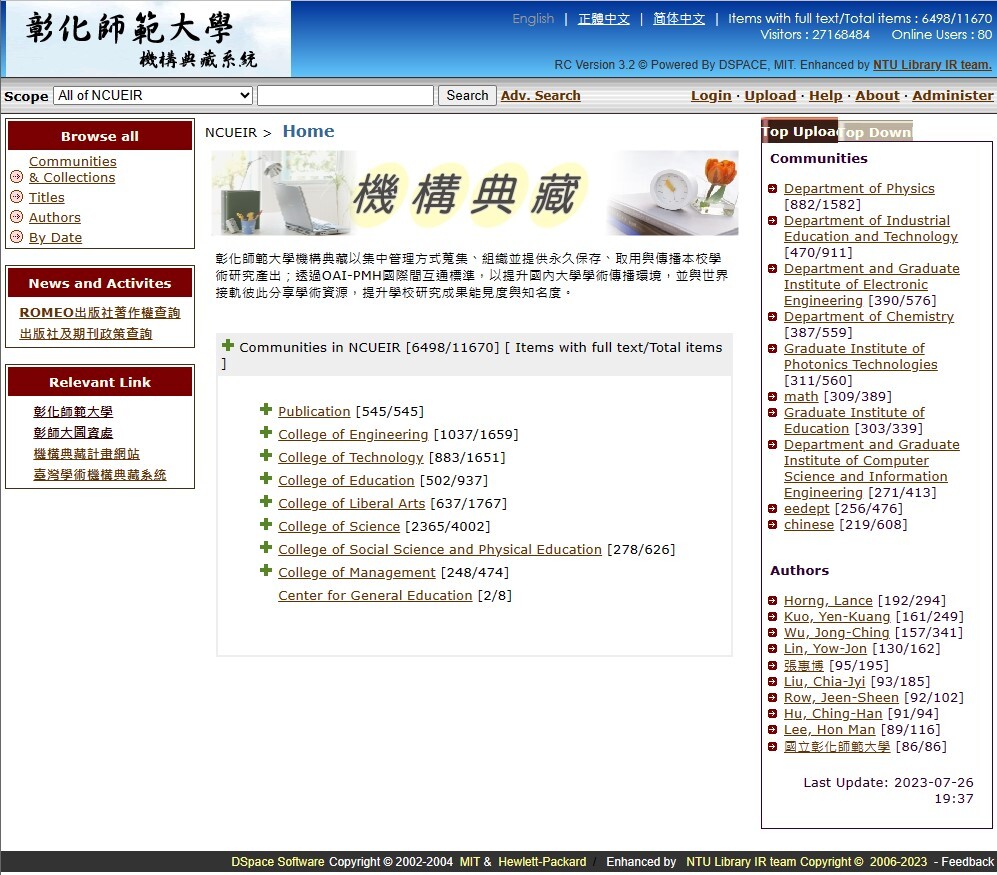
Figure 32. NCUE Institutional Repository
(6) Educational Internship Information Platform (EII):
To strengthen Taiwan's educational practicum system, enhance the tripartite relationship among practicum supervisors, mentor teachers, and student teachers, improve practicum quality, and reinforce cooperation between teacher training universities, practicum institutions, and local educational authorities, NCUE established the Educational Internship Information platform in 2013. The platform provides nine key functions as follows:
(a) Practicum Opportunity Matching: Educational practicum institutions complete an Practicum Institution Intention Survey every two years, which is subsequently reviewed by educational administrative authorities. This process ensures that student teachers have access to fair practicum opportunities and a supportive environment when seeking practicum placements.
(b) Triadic Interactive Learning: Practicum supervisors and mentor teachers can give online assignments for student teachers and discuss individual practicum-related issues, establishing a digital communication channel that enables seamless interaction among all three parties.
(c) Practicum Information Exchange: EII provides real-time updates on practicum-related regulations and training events and also serves as a platform for practicum institutions to post information on student-teacher vacancies.
(d) Educational Practicum Performance Evaluation: EII provides an online system for practicum supervisors and mentor teachers to evaluate student teachers based on three aspects: teaching demonstration, practicum portfolio, and overall performance.
(e) Dedicated Web Sections for Remote Area Schools, Indigenous Priority Schools, Bilingual Schools, and Native Language (Taiwanese Hokkien, Hakka, Indigenous Languages) Schools: EII provides the best channel for student teachers to find practicum institutions.
(f) Administrative Resource System: Student teachers can enter their gender equality training hours, and practicum institution staff can record student teachers' leave status in EII's system..
(g) Educational Practicum Statistical Analysis: EII utilizes the Ministry of Education’s Primary and Secondary School Teacher Database to provide survey questionnaires for student teachers, generating relevant statistical data to help teacher training universities understand their students' practicum situations. Additionally, the platform analyzes practicum performance evaluation data to support the Ministry of Education in policy making.
(h) Overseas School Educational Practicum Web Section: EII assists student teachers in accessing information on overseas school practicums and enables practicum supervisors to assist overseas mentor teachers in uploading practicum grades.
(i) International Educational Observation and Practicum Course Outcomes Video Section: In collaboration with National Pingtung University's Ministry of Education Subsidy for Teacher Training Universities to Conduct International Educational Observation, Practicums, and International Schweitzer Project, this section manages a video archive of program outcomes and regularly tracks updates. It compiles and shares the rich educational practicum results and resources from international learning experiences, enhancing student teachers' multicultural exposure and global competencies.
Educational Internship Information Platform Website: https://eii.ncue.edu.tw/index.aspx

